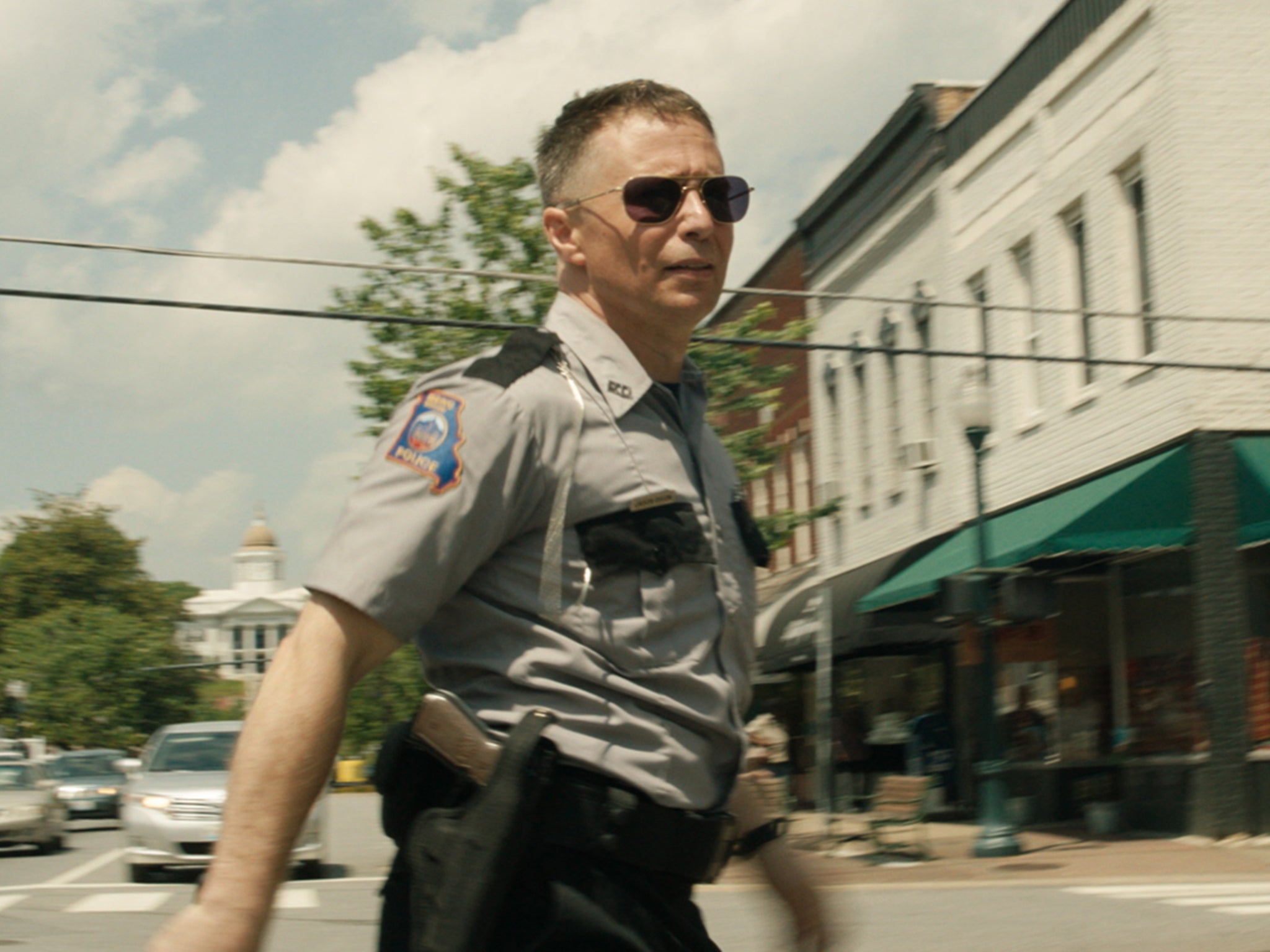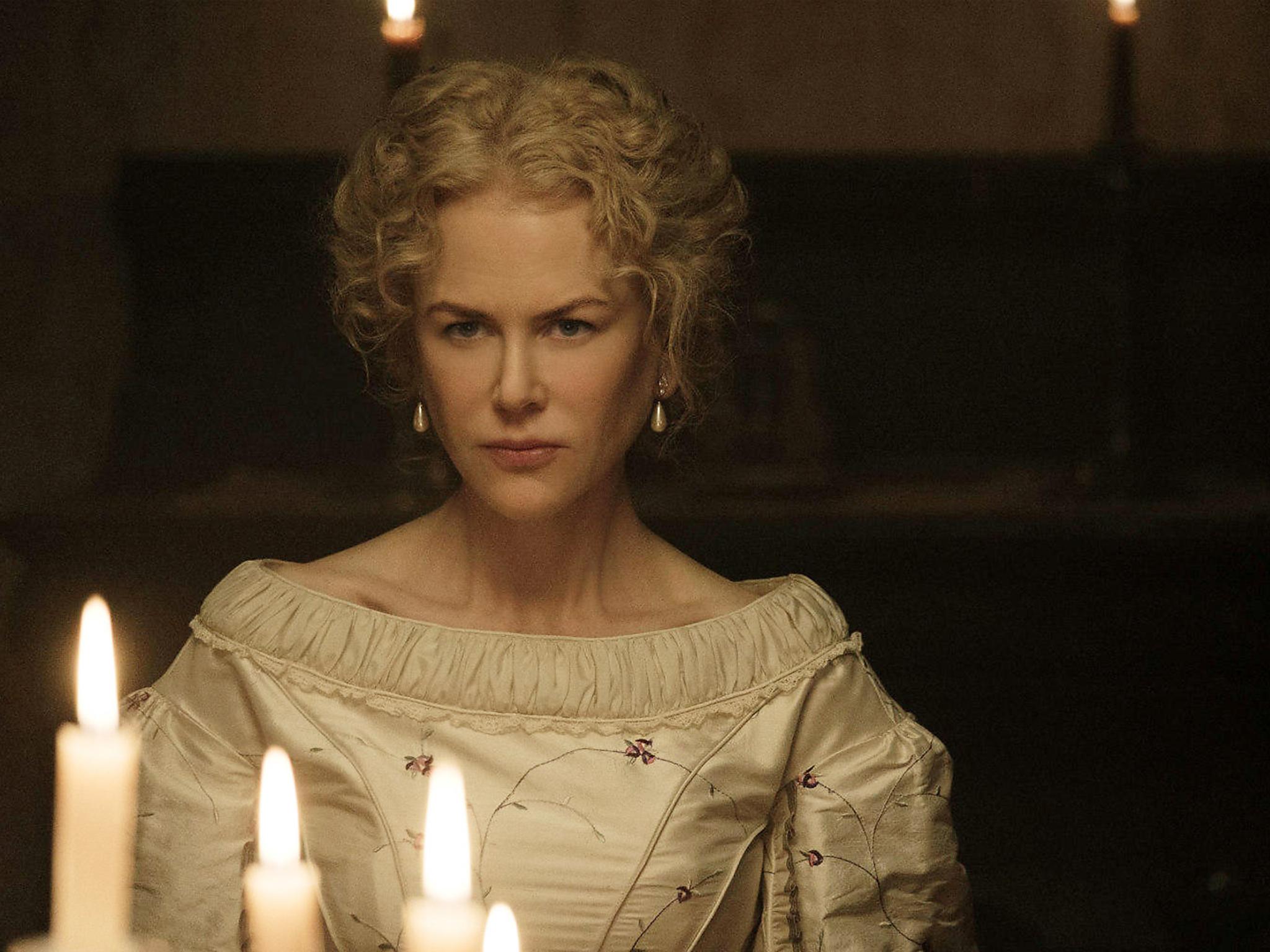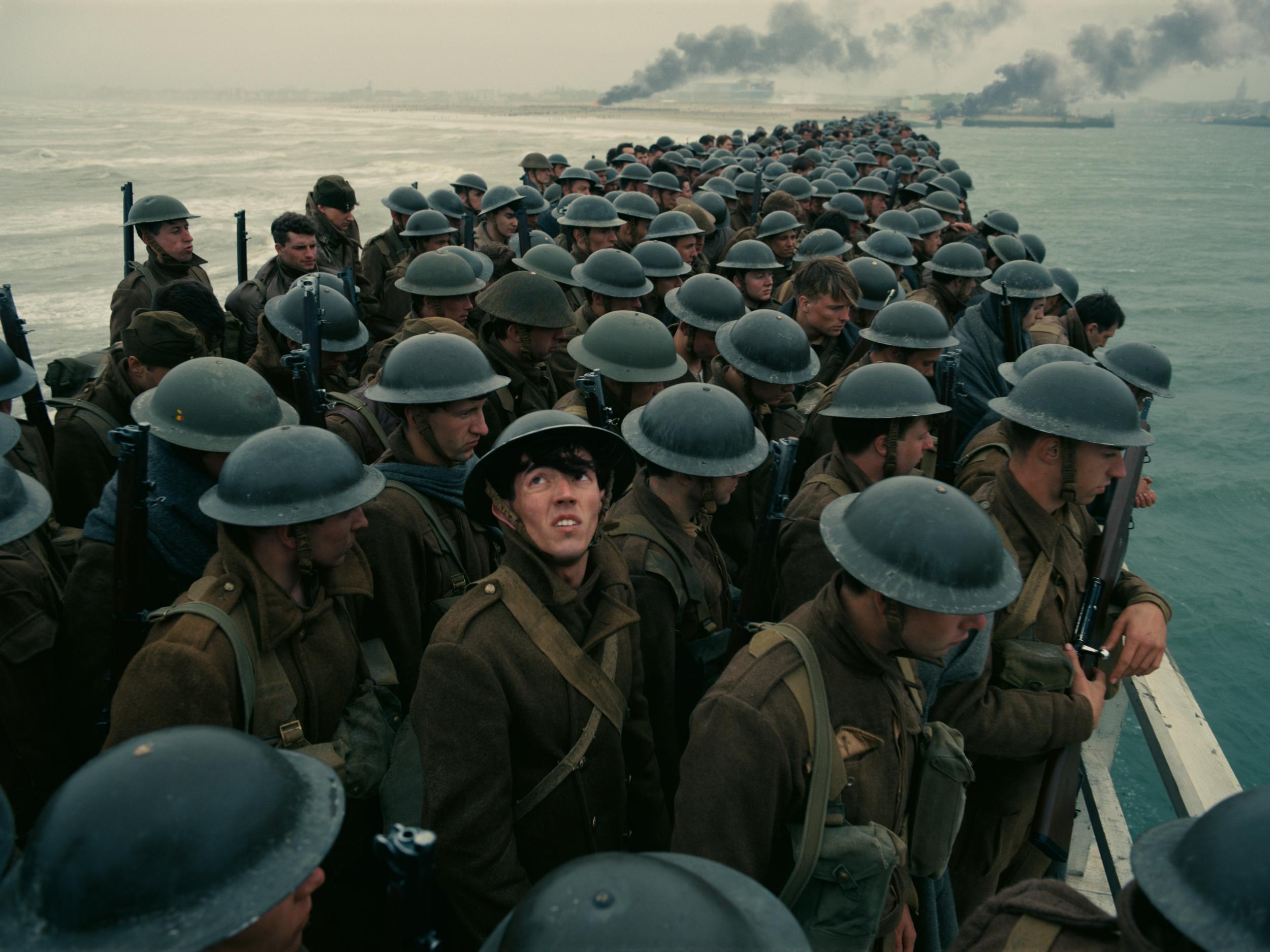How white directors, including Martin McDonagh, Sofia Coppola and Christopher Nolan, are being criticised for failing to depict black characters
'Three Billboards' is the latest example in a series of recent films that have been on the receiving end of backlash because of their depictions of race

Your support helps us to tell the story
From reproductive rights to climate change to Big Tech, The Independent is on the ground when the story is developing. Whether it's investigating the financials of Elon Musk's pro-Trump PAC or producing our latest documentary, 'The A Word', which shines a light on the American women fighting for reproductive rights, we know how important it is to parse out the facts from the messaging.
At such a critical moment in US history, we need reporters on the ground. Your donation allows us to keep sending journalists to speak to both sides of the story.
The Independent is trusted by Americans across the entire political spectrum. And unlike many other quality news outlets, we choose not to lock Americans out of our reporting and analysis with paywalls. We believe quality journalism should be available to everyone, paid for by those who can afford it.
Your support makes all the difference.Martin McDonagh’s Three Billboards Outside Ebbing, Missouri arrives in UK cinemas on the back of an award-winning festival run and critical claim. It won the Best Screenplay prize at the Venice Film Festival and the coveted People’s Choice award in Toronto. It’s the most nominated film at the London Critics’ Circle awards and received a slew of nominations for this weekend’s Golden Globes.
Nonetheless, Three Billboards is already proving to be one of the most divisive films of the past year. While many have been calling it an “absolute marvel”, others, such as Zeba Blay in The Huffington Post, have claimed, “White Critics Love Three Billboards like they Love Their Racist Uncles”.
McDonagh must be rubbing his hands at the debate. In his earlier movies, In Bruges and Seven Psychopaths, and in his plays McDonagh has built a stellar reputation on creating harsh comedy full of put-downs and a disregard for the PC police. In Three Billboards one of the many jokes about racism involves a racist cop, played by Sam Rockwell, assimilating the language or political correctness to undermine it.

It’s ridiculous to say as Blay argues that the reaction of the audience is divided over race lines too. That kind of generalisation is as prejudiced as the criticism it is aimed at. Yet this film, which is funny, well acted and full of witty dialogue, is also deeply problematic because of Rockwell’s Dixon character becoming the anti-hero of the piece and the three black characters, a cop, a shop assistant and billboard painter, in the drama being underdeveloped. How you react to the film will depend on whether you can sympathise with Dixon as McDonagh wants us to do, in a development that echoes the transformation of Clint Eastwood in Gran Torino. Personally, I couldn’t get onside with this paradigm shift.
Ebbings, Missouri, is a fictional town created by McDonagh. Some will see this decision as a metaphor for it being a social satire on present-day America, others that it’s a fictional town that could be anywhere in America that allows the director to take liberties with the characters, making them hyper-real in what is essentially a revenge thriller. Those who see the film as social satire on the state of the nation are likely to be perturbed by the poor racial dynamic; those who watch it as a revenge thriller, pure and simple, are likely to enjoy it.

The film stars Frances McDormand as Mildred, a role that seems to want to remind us of her great turn in the Coen Brothers’ Fargo. Mildred puts adverts on three billboards in a campaign to encourage the local police force to be more proactive in finding the man that raped and murdered her daughter. She names Chief Willoughby on the final billboard, who it turns out is an endearing, much admired and compassionate police officer played by Woody Harrelson. On his force, the cops are racist, celebrated for dishing out beatings and generally above the law.
As the investigation into the murders develops it’s Dixon who becomes the pivotal character. Yet for the most part this is because events force him into a corner rather than him making a conscious decision to develop, yet as he gets more screen time Dixon becomes more sympathetic both in his actions and in the gaze of the camera. But it’s a transformation that doesn’t work, not because of Dixon, but because it’s coupled with McDonagh not caring about the effects that racism has on his underdeveloped black characters, one of whom is thrown in jail for days on a trumped-up marijuana charge.

Another black character is the new police chief, played by Clarke Peters, who puts Dixon in his place. Tonally it misfires. It seems odd in a film that spends so much time establishing that police in America can literally get away with anything because there is little consequence to their actions that a cartoon black figure would be able to create such change.
The trouble with Three Billboards is that it sets up a world that seems like it has a lot to say, but in the end is rather empty and is not interested in the racism or misogyny that it lays bare except as comedic entertainment. And some of the jokes are dubious at best.

Watch Apple TV+ free for 7 days
New subscribers only. £8.99/mo. after free trial. Plan auto-renews until cancelled

Watch Apple TV+ free for 7 days
New subscribers only. £8.99/mo. after free trial. Plan auto-renews until cancelled
In the year after Moonlight won the Best Picture Oscar and Get Out astounded with its cutting social commentary, Three Billboards is the latest example in a series of recent films that have been on the receiving end of backlash because of their depictions, or lack thereof, of race. Some have been accused of whitewashing history (The Beguiled and Dunkirk) or lambasted for telling an African American story through the eyes of a white character (Detroit). Throw Three Billboards into the mix and what is worrying is that the films being made by white directors, albeit with good intentions, are those that are not standing up to scrutiny. Although in the past the same could be said for a good number of Wayan Brothers and Tyler Perry movies.

Sofia Coppola won Best Director at the Cannes film festival for an adaptation of Thomas Cullinan’s book in which she decided to drop the black female slave, arguing, “It was not the depiction of an African American character that I wanted to show them.” Coppola failed to consider that her “good intentions” were now in fact part of a greater problem of whitewashing history that seems endemic in cinema, nor that she is a white person telling us how black people should and shouldn’t be represented.
For Dunkirk, it was Nolan’s failure to put in any soldiers from the Commonwealth that came under fire, as well as some French critics arguing that their troops were not shown on screen. For a film on the scale of Dunkirk, there are a lot of decision makers who deemed it not important to show that not every soldier on the beach was white or remember that it was called a world war because people of all colour, races and creeds were involved. Again there are counter-arguments that could be made about Nolan telling one story and his artistic choice would count for more, if we were not back on territory that had been discussed when Atonement did the same thing.
Kathryn Bigelow’s Detroit was a film that seemed to want to support the Black Lives Matter movement with its references to modern police brutality, but it came in for criticism for its failure to develop the black characters, especially with Will Poulter’s cop being the most memorable character in the film, a lot of this down to his excellent performance. The violent depiction of police brutality that left Ashley Clarke wondering in 4Columns whether “white supremacists might actually enjoy watching it”.
We also had the Pepsi advert debacle in which Kendall Jenner stops a riot by handing a police officer a can of soda. The commercial belittled the sacrifices made in the Black Lives Matter and civil rights movement, yet in pulling the advert, the soda company also could plausible argue, “Pepsi was trying to project a global a message of unity, peace and understanding”.
Right now it seems that nothing has been more apt in recent times than La La Land being called as the Oscar Best Picture winner instead of Moonlight. On that stage that night were faces of confusion, good will and a desire to get to the right outcome. It just seems like there are going to be a lot of hiccups along the way, and films such as Three Billboards are under more scrutiny than ever.
‘Three Billboards Outside Ebbings, Missouri’ is out 12 January
Join our commenting forum
Join thought-provoking conversations, follow other Independent readers and see their replies
Comments